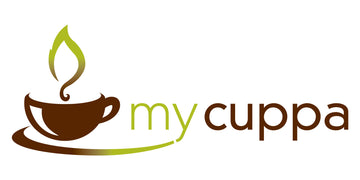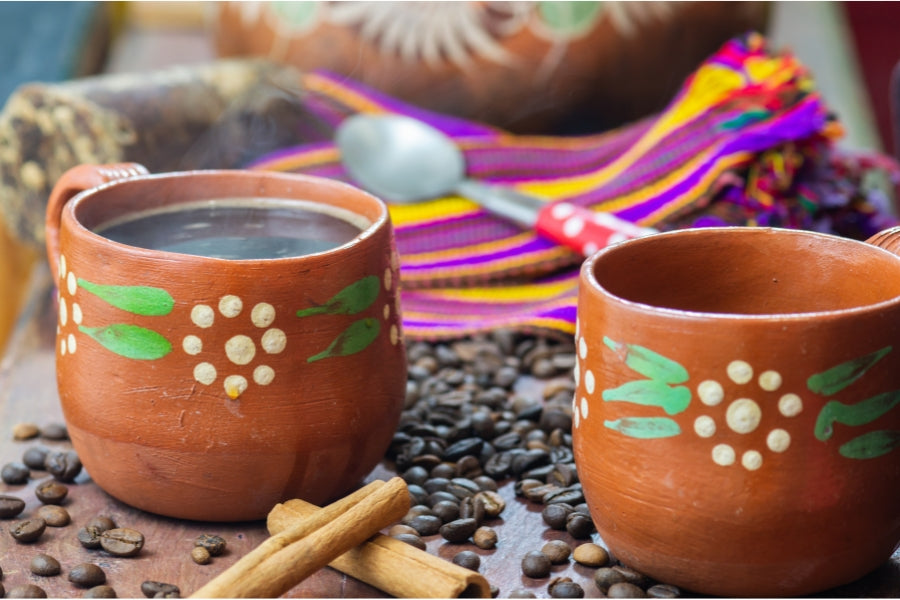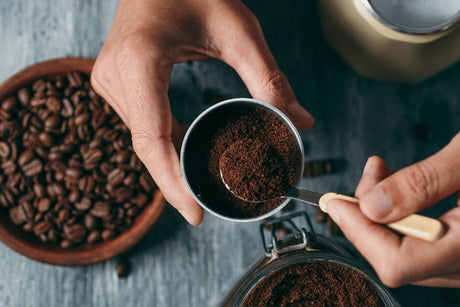mycuppa April 2016 Newsletter
Mexico
When we think of Mexico, it's often tacos, tequila, OEM electronics and perhaps even automobile manufacturing.
The Mexican economy has the 15th largest GDP and the 2nd largest disparity amongst OECD countries between the extremely rich and poor, surpassed only by Chile.
According to current stats, economists predict the Mexican economy will grow to be the 5th largest in the world by 2050.
As a coffee producer, Mexico has been known historically as a cheaper, low-grown blender exhibiting a milder cup of chocolate and nut characteristics.
Mexico occupied a similar position to Peru in the types it offered for cup, price and outcome.
Like Peru, Mexico struggled with low prices being paid for their crop, and many years ago, Mexico embarked upon a systematic program to differentiate in the market through increased volumes of Organic certified products and substantial improvements in cup quality so that better prices would be paid.
Traditionally, Mexican coffees were blended at origin, meaning the good quality lots were not separated for higher priced sales.
These days, producers are seeing the real benefits and incentives to isolate the better lots for sale through the specialty grade network.
Almost three years ago, I stumbled across some amazing Mexican lots that reignited my passion for their coffees.
My broker had recommended we look at some stunning specialty-grade Mexican offerings - high-grown, naturally processed, delivering extraordinary cups.
The first inclination was to give it a miss, but the broker was insistent.
These coffees from San Christobel were unlike any Mexican coffees I had tasted previously - closing my eyes; I would have happily bet $100 I was tasting pure Ethiopians - sweet, clean, beautiful fruity acids with a sparkling finish.
Clearly, some of the best coffees I had tasted all year.
Honestly, I was ranking those specialty Mexicans higher and superior to the similarly ranked Ethiopians - a big call at that time.
We also noticed around 2013 that many of the quality-focused coffee roasters in Melbourne were starting to incorporate Mexican coffees into their featured offerings.
Over the years, we picked up some great Pluma Organic and wonderful FAIRTRADE Organic coffees.
I've often featured Mexican specialty micro-lot coffees in our monthly subscriptions with positive feedback from our subscribers.
Mexico has come a long way in the last five years.
Their high-grown coffees match Guatemala, Honduras and other origins in terms of cup quality and price, with Mexican coffee no longer being regarded as a cheaper filler.
Crucially, Mexican coffee farmers are being paid better fees for their good lots, and they see the benefits of constantly improving quality.
Many programs are also underway to cultivate varietals that are more resistant to Roya (Coffee Leaf Rust) and many other pests that can degrade the quality.
Sadly, this year, Mexican coffee availability has become difficult due to extremely low crop yields caused by bad weather and Roya.
The shortage of coffee in Mexico has become a crisis to the point where coffees from Guatemala are being illegally trucked across the border and sold as Mexican coffee to make up the volumes for committed sales obligations.
This, in turn, has created a knock-on effect on Guatemala coffees as they face looming shortages and price spikes from decreased supply that force buyers to abandon excessive prices asked for Guatemalan coffees and look elsewhere, such as Honduras and Nicaragua.
In particular, our new crop of Guatemalan coffees we booked last week are priced around $1 per kilo higher than the previous year.
The good news is that we picked up half of a ton of stunning Mexican Organic coffee that we will be offering via the Pluma product in our store for a limited time until it runs out - which we expect is around 6+ weeks.
This lot scores 85 points, and to put that into perspective, most coffee provided to cafes scores around 80 points.
As you climb to 83 points, the coffee is a noticeable level above in terms of cup quality and many $$ per kilo more expensive.
An 85 is sitting very high in the top 5-7% as the scarcity and price of coffees scored higher than 85, putting them in a limited and expensive territory, e.g. $35 - $50 per kilo at the retail level.
For this special lot, we enjoy the clean flavours of black tea and lemon citrus acidity when prepared as a straight espresso - delightful.
It has a delicate and refined body through to a lingering toffee and subtle buttered stone fruit finish.
It's one of the nicest, rounded, balanced, classic coffees in single-origin format I have tasted in over six months.
What I love about this quality Mexican coffee is the balanced acidity and the effect of milk on an espresso - it's so very moreish, and I can't stop at 1 cup.
At $25 per kilo, it's an absolute bargain for an 85-point Organic coffee and, without doubt, the best coffee we have in our store.
This certified Organic coffee is available for a limited time.
Roasters Rant
My wife and I have a running joke - she thinks I have Irish blood, but I keep saying I'm 100% Scottish, as I was raised to believe.
She blames my extreme passion and fiery temper when something is wrong as proof beyond doubt that I'm more Irish than Scottish.
I confess to enjoying a rant when I smell a rat, and I've tried to bite my tongue for a long time when I see our industry peers bang on and on about their ultra-exclusive and oh-so-special Direct Trade coffees.
Many coffee companies today use Direct Trade as a key marketing exercise to help them differentiate in what has become the overcrowded coffee market.
We have a Direct trade product, and it was one of those essential business experiments you must undertake to see if there is a beneficial outcome for everyone concerned because you don't know until you live it.
Well, I can tell you from first-hand experience - it's nothing special, and the perceived rewards or differences are a perception.
Companies that promote Direct Trade are projecting the illusion of the roaster travelling to origin, sampling lots on farms and then purchasing special coffee, or that through special negotiating powers, they have secured something the rest of us can't get. It's the secret handshake that makes all the difference.
After reading between the lines, it becomes clear that sourcing raw coffee beans used worldwide has remained unchanged for the past 150 years.
The only new additions are the attractive pictures and an impressive marketing campaign.
It is a wonderful story, and it looks so easy.
Selling an emotional journey with food/drink products has been the key element of marketing magic in the last few years - especially in the premium quality segments, as it helps justify the excessive margins many retailers slug those naive consumers.
The Direct Trade coffee systems are precisely designed to tick many of the boxes in our ethical and moral subconscious, drawing you emotionally into the story and entrenching your loyalty and support - the war cry or plea to join them on this journey and help out poor, struggling farmers.
The reality of Direct Trade coffee is a stark contrast to the marketing hype, as such a small percentage of coffee is Direct Trade in Australia.
Unfortunately, a lot of misrepresentation continues to occur in our industry because it's not regulated - you can get away with basically saying anything. Nobody can challenge, inspect or expose the truths or lies.
So, let's look at the practicalities of Direct Trade coffees.
Travel to many of the world's coffee origins is considered extremely dangerous without the appropriate levels of care and the assistance of local people to navigate from airports, local transport and accommodation.
Coffee farms are in remote areas of the country, high in the mountains - not your typical tourist routes and, in many cases, require literally a day of travel through pothole-ridden back roads - certainly not a pleasant taxi ride from the airport.
Many of the farms and plantations have existing, long-standing agreements with local exporters and agents, and it's naive to believe these can be gazumped by an outsider rocking up at their doorstep.
Some countries also have regulations by way of national systems such as coffee boards and federations run by government or industry agencies.
Please don't get me wrong; I know that many coffee farmers exist in a state of poverty or borderline oppression, so my point here is not to shame the farmers, just the marketing profiteers on the retail side.
Testing and timing - how does someone adequately test the coffee at the farm when there are no roasters, barely any running water, limited electricity and basic levels of infrastructure?
How can this intrepid traveller also be at the farm at the precise moment the coffee has been harvested and about to be processed - before the farmer, who in most cases has run out of money by this stage and eagerly seeks to sell his crop as a matter of urgency, offers it up to local interests.
Many farmers also need the proper processing facilities, so they sell the cherries to Co-op or local agents. Another party normally performs the grading, pulping, drying and packing of the coffee, so it's likely already been sold by that stage, or at least some deal exists.
Our Australian traveller may then have to negotiate with the local agents, which, in effect, is the same process that Australian brokers already perform - so is this Direct Trade?
Of course, then you must consider the logistics - getting tons and tons of coffee from one country to another safely through the myriad of export and import quarantine requirements.
Remember that many of these farms are in remote regions with 3rd world challenges of limited transportation once it's landed and cleared customs in Australia; what happens if the manifest does not match the pre-shipment samples that were used as the basis for purchase quality - a huge risk that occurs more often than most people realize.
Last week, we rejected new arrivals from Guatemala based on the quality not matching our standards.
You see, Direct Trade is not the romantic notion that is often portrayed in the marketing hype.
The pictures of the coffee company directors or their roasters at coffee plantations are sometimes just nothing more than a plain and simple selfie opportunity.
Coffee companies are already struggling to compete against each other in Australia without dealing with the costs and headaches of sourcing from overseas.
When you blow away the smoke and mirrors of Direct Trade, you realize the coffee is not unique or exclusive; it's unlikely to have involved higher payments to farmers because these things are never, ever transparently disclosed, and ultimately, it's not disrupting the industry like a Uber, AirBnB, Netflix or Google - it's just trading the same way it has for more than a century already.
It's a good story intended to capture our imagination.

Same Day delivery option - Limited Melbourne Metro area only
We are creating a new, exciting arrangement in partnership with Startrack's courier program.
mycuppa.com.au will be one of just 20 new merchants offering this super-fast service, allowing an order to be placed up to 2:30 pm on business days for delivery to your address between 6 pm and 9 pm that evening.
The concept of cross-town same-day couriers has been introduced previously.
Still, this is a unique offering for business consumers as it's traditionally designed for business-to-business.
A full customer tracking website is made available via the URL delivered using either SMS or email notification to enable access via your phone to view the real-time events such as booking, pickup, en-route, arriving soon, and delivered messages, along with service feedback rating.
To better understand the system's performance, I'd like to mention that it is currently utilized for transporting critical and time-sensitive freight, such as body organ transplants.
You can rest assured that our drivers will put their best effort into ensuring that parcels are delivered on time and meet the customer's expectations.
It's a different grade of service compared to regular and express freight.
Parcels are collected from our facility between 3:00 - 3:30 pm, taken back to Port Melbourne and then dispatched on a van for delivery to you between 6:00 - 9:00 pm that evening.
A standard flat rate of $13.75 plus GST applies for each parcel, whether 500g or 15kg.
We hope by the end of April to be offering this service to a limited Melbourne metro area and look forward to helping our customers who need an urgent supply of coffee without having to wait.

Why does our coffee change so much
Coffee is a 6-monthly crop, and some origins have a main crop once a year, with a smaller crop following around six months later.
For many of the larger regions, there can also be three different stages within a crop, referred to as the harvest and more commonly spoken about in terms of early, mid and late harvest.
The coffee can be quite different within these harvest periods.
For example, picking the cherries in the early harvest may introduce higher proportions of unripened fruit, whilst a late harvest pick may contain higher levels of over-ripened fruit.
One of our Brazil coffees is a late harvest pick, and it's a deliberate strategy to develop a more intense sweetness.
The important point to remember is that it's not a once-a-year thing - buying raw coffee is a constant task that is demanding and, at times, very difficult.
Change occurs within our holdings at least every month as crop cycles are not aligned concurrently around the world at the same precise period.
There are many other factors at the origin, such as transport and processing delays, that result in staggered arrivals in Australia.
It's common for coffee to be held up at its head from 4 to 8 weeks due to transit or clearance delays.
Some origins also store freshly processed coffees for a couple of months to stabilize the coffee or to spread out shipments for cash flow smoothing or due to specific demands from the end customer.
Fresh raw coffees can be more difficult to roast, and we are currently dealing with this challenge from recent Central American arrivals.
What it means for our coffees is that some new arrivals are transitioned into blend recipes regularly and are likely to result in subtle differences in the characteristics you have historically expected.
Change is an entirely standard part of the coffee lifecycle as it is not practical to buy 12 months' worth of raw coffee upfront (finance, storage, quality, etc.); raw coffee degrades over time so that any professional coffee roaster will perform rotation of their holdings and the term "seasonal or seasonal blend" is now more of an accepted way of explaining that there are variances in coffee.














